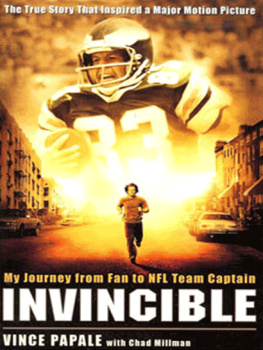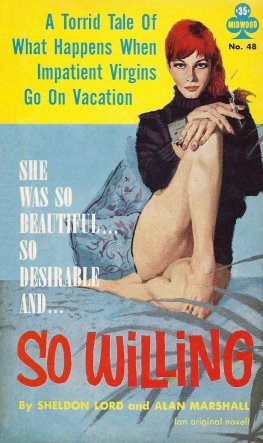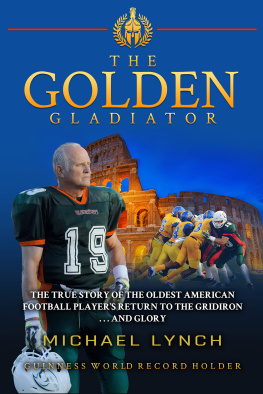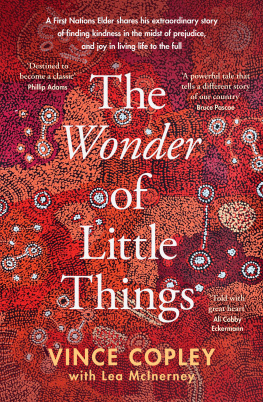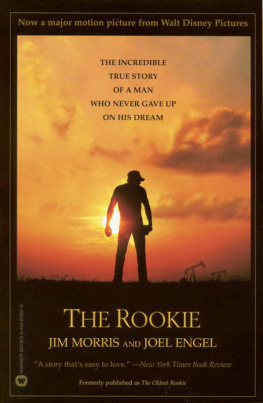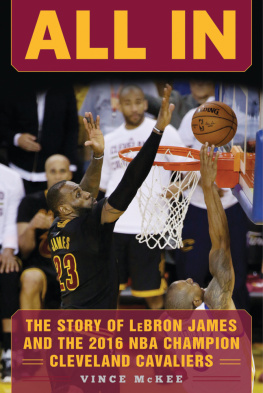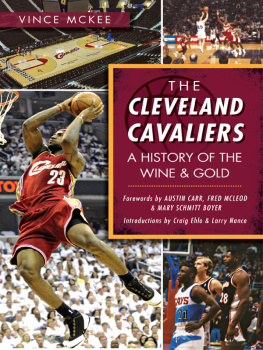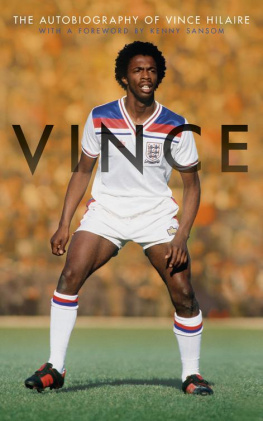INVINCIBLE
MY JOURNEY FROM FAN TO NFL TEAM CAPTAIN
VINCE PAPALE
WITH CHAD MILLMAN
NEW YORK

To Mom and Dad for their spirit;
Janet, Gabriella, and Vincent for their inspiration;
George Corner for his guidance;
Dick Vermeil for the opportunity;
and Jefferson Hospital for a second chance!
Contents
W E CALLED ourselves the project boys, the kids of cinder-block city. Me and Albert Friel and Frankie Falcone and Billy Sides and Bobby Joe Hazel, who was our local celebrity because his uncle Del Ennis was a Phillies outfielder and his mom was real foxy. We were poor, and werent ever made to believe we were anything but, and we thought we were tough, or at least we fought like we were. Because when youre from the project all you know is that youre not as good as the kids who arent. And we spent our lives trying to convince ourselves that wasnt true.
Our housing project, the Glendale Heights Ownership Association, was built during the Second World War on an old golf course in Glenolden, Pennsylvania. My family moved there in 1945, the year before I was born. The project was in Delaware County, the suburbs of Philadelphia, connected to the city by a factory-lined road called the Industrial Highway. But Philly might as well have been as far away as California to us. The people there seemed like aliens. My friends and I shared urban myths about the hoods in leather jackets who hung around fires built in tin cans singing doo-wop songs.
My parents, Francis and Almira, grew up in Delaware County. My father started working as a burner cutting sheet metal at the Westinghouse factory on Industrial in 1946, when he was twenty-seven years old. Before that he had been building houses. We lived on Andrews Avenue in a house barely big enough to hold a dining room table. A phone hung next to the closet, and behind those doors was the only place you could get any privacy. My bedroom was so long and thin we werent able to fit a bed in there and close the door. And from my window I could hear the whistle of the Baltimore & Ohio Railroad. My parents had been living in an old stucco farmhouse on my grandfathers farm that he had converted into an apartment. My grandfather had nine kids and all of them, after they were first married, lived in that apartment. When my parents moved to this home in the project, the first that they owned together, it was supposed to be a step up in life. My dad built a patio, planted a garden in front of that, put up a green awning, kept our used Pontiac with the junkyard parts parked in a space out front, and stashed a loaded .22 in his room. That was to shoot the rats. All the homes in the project were small and cheap. To us, any place where you couldnt hear the neighbors snoring would have been an improvement. One summer in the early 1950s a group of college kids who thought they were doing a community service for those of us less fortunate painted all the houses in the neighborhood in pastel colors. By the end of the winter, the bright pinks and blues and yellows had begun to peel and blister, making every house look like a cracked Easter egg. The next spring, the housing association covered the houses in aluminum siding.
Whatever my father thought he was getting when he moved us into the project, it didnt stay that way for long.
Most of the dads I knew from the project were factory shift workers, all dressed in blue work shirts and blue work pants, carrying metal lunch pails and packs of Pall Malls. They had to finish their morning coffee and be out of the house by 7:30 to make the 8 A.M. whistle. You could see the cars pulling out from in front of their houses as though their departures had all been synchronized, like dominoes falling down one after the other. By the time they finally pulled onto Lincoln Highway there were never any accidents because no one ever went anywhere. My dad was a member of the United Electrical Workers Union, and hed go on strike anytime one of his fellow members was sent home, whether it was justified or not. Theyd walk out if a line worker who got drunk during lunch was told to go sleep it off for the rest of the afternoon. It seemed as if they were constantly striking. And every time they did it hit us hard. It always felt like we would never recover. There were close to thirty guys who worked at Westinghouse that lived in the project. I remember calls from the shop steward to my mom, telling her my dad was on his way home and everyone from the project was going to huddle together and figure out what to do next. Sometimes my dad would pick up work as a mechanic. Other times hed drive a trash truck around West Philly. And occasionally hed walk the picket line. It seemed as if there was always something dangerous going on there, men being beaten, cars being flipped over and torched.
My father wasnt a big man, but my aunts, uncles, cousins, and his friends called him Kingie, because he always won when they played king of the hill. Nobody messed with him. He had grown up on a fourteen-acre farm where the town used to dump all the garbage, so the pigs his father owned could forage through it and have something to eat. My grandfather Vincenzo had bowlegs and hairy ears and hairy nostrils. He came to the United States from Italy with his father in 1899, when he was seven years old. The two of them settled on a farm in Delaware County and then sent for his mom and five younger brothers and sisters. Vincenzo Papale had a wonderful singing voice and he and all his brothers used to play instruments like the viola or the violin and sing together on Sunday afternoons.
My grandfather believed the oldest children were to sacrifice for the youngest, which is why he and his nearest brother in age worked the farms and pushed their younger siblings to go to school. His youngest brother, Tony, would become a lawyer and, eventually, the dean of Loyola University in New Orleans. Vincenzo Papale also subscribed to the parenting philosophy that children were to be seen and not heard. My dad was the second oldest of the nine Papale kids, and he and the oldest, his brother Gus, had to quit school in eighth grade to work on the farm. This was during the Depression and my grandfather needed to supplement what he made working the assembly line at a local Ford factory by selling beets, corn, and tomatoes at local markets. He even sang around town with his hat in his hand. He developed a work ethic that would last for the rest of his life. For thirty years he worked at that Ford plant, changing jobs as he got older from assembly line worker to spray painter to forklift operator. Hed work from seven in the morning until three in the afternoon, then come home and spend three hours tilling the farm. When he was done hed take what he had picked and sell it in the local markets. And what he didnt sell he canned. All his children had fresh spaghetti sauce year round because of all the tomatoes he produced. But the sting of the Depression would never leave him.
Like so many people during those lean years, the times made him hard and angry. Years later my aunt Suzanne, who was actually born three years after me, when my grandfather was fifty-eight, would say, Daddy, tell me about the Depression. My grandfather would respond, Well, there were men with one child jumping off bridges. And I had eight.
Hed often take it out on his oldest boys, not just in work, but also in anger or, worse, indifference. One afternoon my dad was cleaning the family outhouse and got some lye in his eye. He was screaming, stumbling around the farm looking for help from anyone who could hose down his eye. When his father found him he washed out the lye. And then told him to get back outside to finish working. My fathers eye was so badly damaged he became legally blind.
Next page
